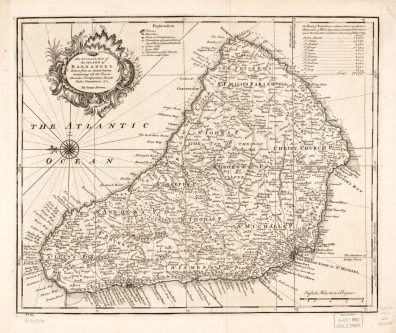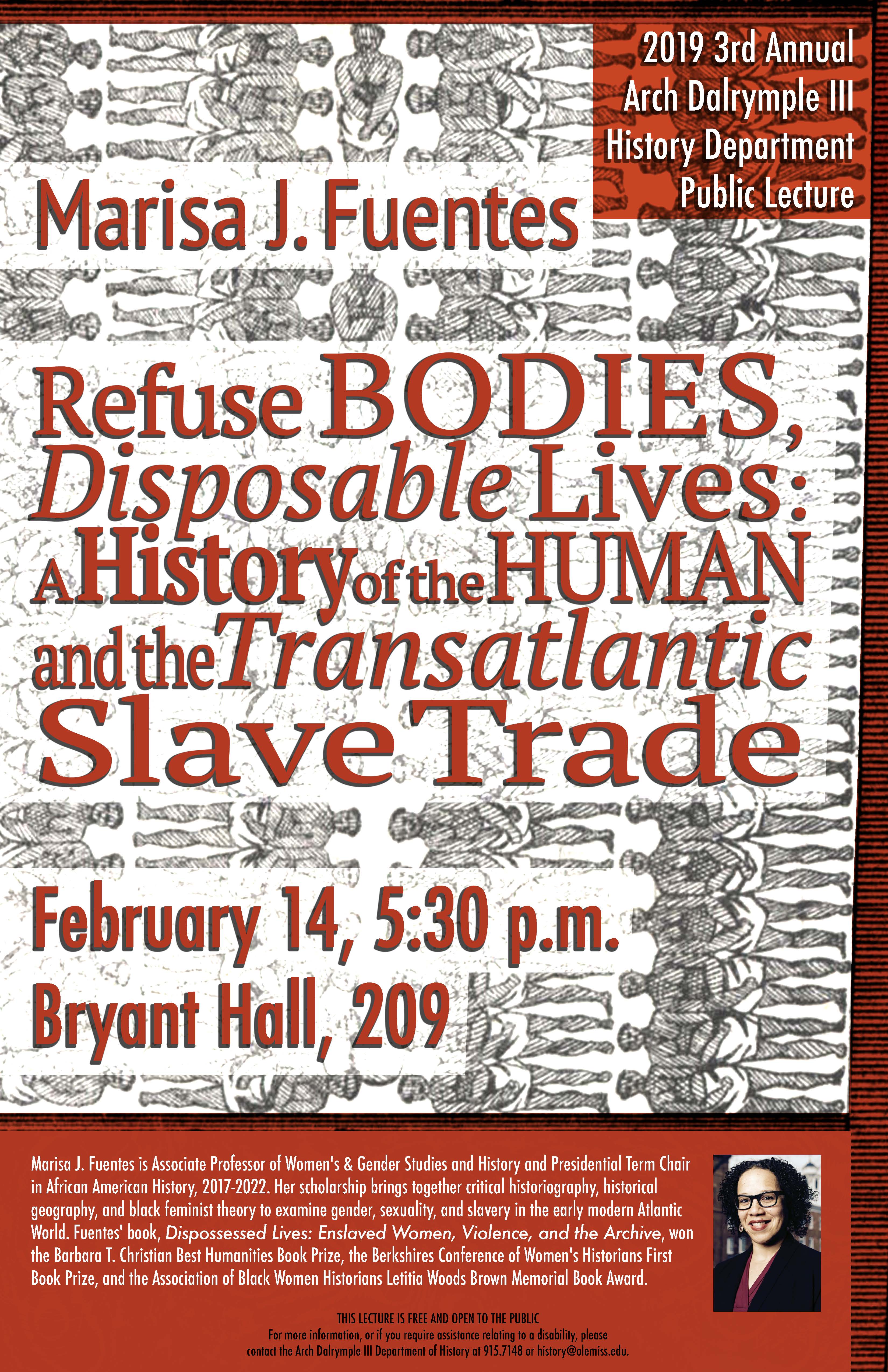


In doing so, her work investigates the sometimes hidden intentions and power dynamics that frame people’s decision-making. In other words, she pushes historians to stretch fragmented archival evidence in order to reflect a more nuanced, complex understanding of enslaved people’ lives. Instead, she calls for a reading “along the bias grain,” of historical records and against the politics of the historiography on a given topic.

She cautions scholars to avoid traditional readings of archival evidence, which are produced by and for the dominant narratives of slavery. Fuentes’ work contributes to the historical knowledge of early America through her focus on violence and how it operated during slavery and continues today through archives.


 0 kommentar(er)
0 kommentar(er)
